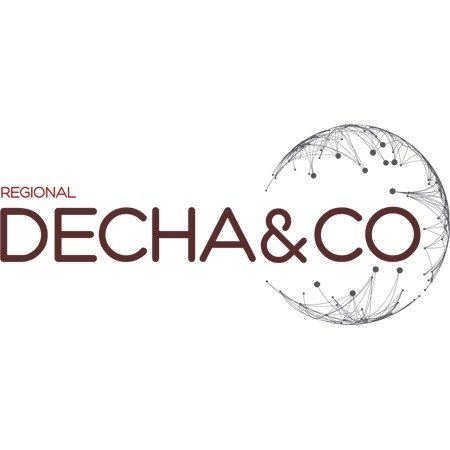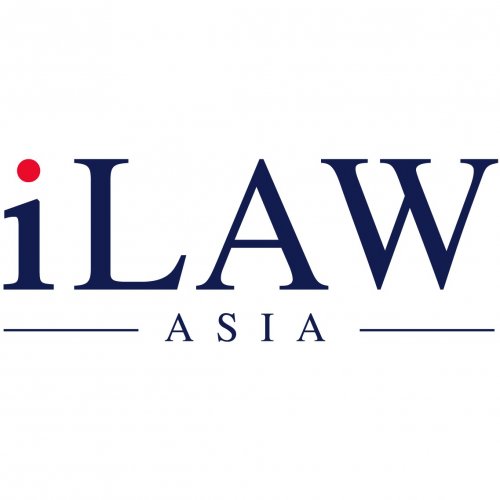Best Tax Increment Financing Lawyers in Yangon
Share your needs with us, get contacted by law firms.
Free. Takes 2 min.
List of the best lawyers in Yangon, Myanmar
About Tax Increment Financing Law in Yangon, Myanmar
Tax Increment Financing (TIF) is a tool used primarily in urban development and redevelopment projects, which allows local governments to fund projects by capturing the future tax benefits of the improvements made. In Yangon, Myanmar, the introduction of TIF is relatively recent and aims to spur economic growth in underdeveloped areas, enhance infrastructure, and encourage private investment. The local government believes that by investing in particularly blighted districts, they can stimulate long-term economic recovery that benefits both the community and developers alike. However, TIF in Yangon involves intricate legal and financial frameworks that require careful navigation.
Why You May Need a Lawyer
There are several situations where legal expertise may be required in relation to Tax Increment Financing in Yangon:
- Understanding Regulatory Frameworks: The application and management of TIF projects involve complex laws, regulations, and ordinances. A lawyer ensures compliance with these intricate legal frameworks.
- Contract Negotiations: Agreements between developers, municipalities, and financial institutions can be complex and require expert negotiation skills to ensure fair terms.
- Dispute Resolution: Conflicts may arise between stakeholders over project goals, timelines, or financial agreements. Legal assistance is essential in resolving these disputes efficiently.
- Financial Structuring: Proper structuring of TIF financing to align with development objectives requires thorough legal understanding.
- Sustainability Assessments: Legal advice can help evaluate the socio-economic impacts of TIF-funded projects.
Local Laws Overview
Understanding the legal landscape for TIF in Yangon is crucial for successful project implementation:
- Development Laws: Regulations concerning land use, environmental impact assessments, and zoning laws play a significant role in the feasibility of TIF projects.
- Financial Legislation: Laws related to municipal bonds, government grants, and public-private partnerships affect TIF funding and implementation.
- Taxation Policies: Yangon enforces specific tax increment policies that determine how increments are calculated and distributed to development projects.
- Public Participation Rules: Community involvement is often required, and laws governing public hearings and participatory frameworks must be followed.
Frequently Asked Questions
What is the primary objective of Tax Increment Financing?
The main goal of TIF is to stimulate economic growth in underdeveloped areas by funding improvements through future tax revenue increases.
Who is eligible to utilize Tax Increment Financing in Yangon?
TIF is generally available to local governments and developers involved in urban redevelopment projects that meet specific criteria set by Yangon’s local regulations.
How can TIF benefit my development project?
TIF can provide necessary capital for infrastructure improvements, enhancing project viability without raising immediate taxes or using existing municipal budget.
What are the risks associated with Tax Increment Financing?
Risks include potential financial overreach if tax increments do not meet projections, as well as administrative challenges in managing and financing TIF projects.
Is public approval required for TIF projects?
Community input and approval processes are often required to ensure projects align with public interest and local development goals.
How is a TIF district established?
A TIF district is set up through a legal process whereby certain areas are designated for redevelopment, following a series of approvals from relevant government bodies and community stakeholders.
Can TIF be used for residential development?
Yes, TIF can fund residential development projects, especially those intended to uplift blighted areas and integrate mixed-use facilities.
How long does a TIF district last?
The duration of a TIF district varies but typically extends over a period sufficient to repay bonds or loans issued, often ranging between 20-30 years.
What are the responsibilities of a developer in a TIF project?
Developers are responsible for planning, financing, and executing projects in accordance with TIF district goals and legal agreements with municipalities.
Can TIF funds be used for operational expenses?
No, TIF funds are typically restricted to infrastructure and capital improvement projects, not for ongoing operational expenses.
Additional Resources
For further support on Tax Increment Financing, consider consulting the following resources:
- Yangon City Development Committee (YCDC): Provides guidelines and regulations related to urban development projects.
- Myanmar Investment Commission: Offers information on potential investment opportunities and legal requirements.
- Legal Firms Specializing in Urban Development Law: Can provide personalized legal assistance and representation.
- Urban Development Ministry: A governmental body that outlines national policies relevant to urban redevelopment and infrastructure improvement.
Next Steps
If you require legal assistance for a Tax Increment Financing project in Yangon, here are some steps to consider:
- Research Local Lawyers: Identify and consult with legal professionals specializing in finance and urban development.
- Prepare Documentation: Gather all necessary project-related documentation, including development plans, financial projections, and existing legal agreements.
- Schedule Consultations: Meet with potential lawyers to discuss your specific needs, their experience, and the potential legal strategy for your TIF project.
- Evaluate Guidance: Assess advice provided and make informed decisions regarding the legal steps and potential financial implications of your TIF project.
With careful preparation and the right legal assistance, you can navigate the complexities of Tax Increment Financing in Yangon to achieve successful project outcomes.
Lawzana helps you find the best lawyers and law firms in Yangon through a curated and pre-screened list of qualified legal professionals. Our platform offers rankings and detailed profiles of attorneys and law firms, allowing you to compare based on practice areas, including Tax Increment Financing, experience, and client feedback.
Each profile includes a description of the firm's areas of practice, client reviews, team members and partners, year of establishment, spoken languages, office locations, contact information, social media presence, and any published articles or resources. Most firms on our platform speak English and are experienced in both local and international legal matters.
Get a quote from top-rated law firms in Yangon, Myanmar — quickly, securely, and without unnecessary hassle.
Disclaimer:
The information provided on this page is for general informational purposes only and does not constitute legal advice. While we strive to ensure the accuracy and relevance of the content, legal information may change over time, and interpretations of the law can vary. You should always consult with a qualified legal professional for advice specific to your situation.
We disclaim all liability for actions taken or not taken based on the content of this page. If you believe any information is incorrect or outdated, please contact us, and we will review and update it where appropriate.










